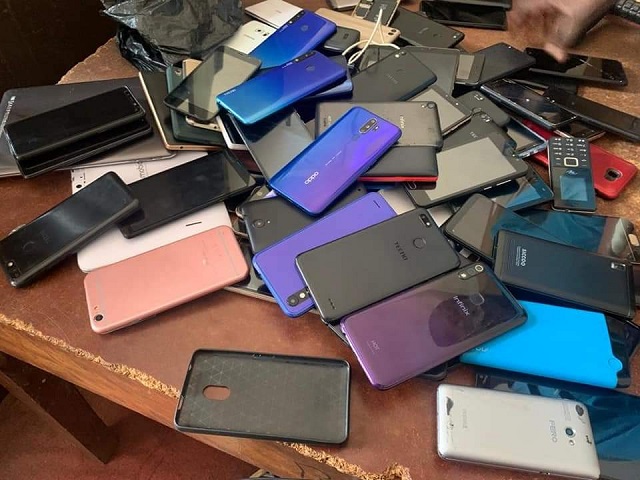
Kampala, Uganda | THE INDEPENDENT | The government has partnered with the private sector and civil society to prepare the public ahead of the planned blocking of counterfeit mobile phones and other communication gadgets from the market.
After failed attempts to rid the market of sub-standard and counterfeit phones for more than a decade, the government through the Uganda Communications Commission-UCC, opted for mobilization of the public and sensitization of consumers and traders on the effects of this trade.
UCC says they have acquired equipment and personnel capacity to block counterfeit phones, but that for now, they are focused on sensitizing importers, traders, civil society, and the general public, on what a fake or counterfeit phone is.
UCC says for now it is important to discourage the demand for such gadgets which will involve mindset change, that when it is clear that the market is aware of the dangers, another step will have to be taken.
Joseph Kizito, the Head of Consumer Affairs at UCC says otherwise at that time, the system will reject the connection of a phone when it is deemed counterfeit.
Generally described as “goods that infringe trademarks,” counterfeits in most cases are made of more hazardous substances like lead and cadmium than genuine ones, while fake phone chargers pose a risk of fire and electric shocks.
The hazardous substances also increase the dangers from electric waste and call for more investments to manage.
In 2018, the government withdrew the Anti-Counterfeit Goods Bill 2010 from parliament saying it did not adequately cater to the objectives it otherwise targeted.
Asked what laws or policies will be used this time around, Kizito said previous attempts have not worked because they were only using laws that were not adequate.
Now, he says collaborating with other agencies gives them more options to use for enforcement, but says that sensitization of the masses is vital.
The counterfeits persist because of several factors like price differences, easy availability, and failure to differentiate genuine from fake ones, among others.
The State Minister for ICT, Godfrey Kabyanga Baluku says many people now know what it means to buy a counterfeit or substandard product, but that the majority cannot identify them, nor do they even know the dangers associated with buying goods that are not genuine.
He says that while the laws providing for enforcement are there, there is a need to help the people understand.
The UCC reports that there are about 30 million mobile phones in Uganda, with an estimated half of them being counterfeit, though there are no clear records.
Most counterfeit phones and commuters are imported and currently, the responsible government agencies have no system in place to block them. They therefore end up being imported through legal channels including payment of customs taxes.
The Ministry of ICT and National Guidance says the government has a duty to protect the economy, the environment, and human health which can be affected by counterfeits.
Kabbyanga also says with the government rolling out the next phase of the national fibre broadband backbone project, there is a need to ensure good-quality gadgets in circulation.
This will also lead to an increased use of data and enable the services providers and government to lower the cost of the internet, according to him.
The traders have also resisted the previous attempts by the government to crack down on counterfeit electronic gadgets, calling for time to prepare themselves.
They also claimed that they did not know how to tell a fake gadget from a genuine one.
However this time around, Kampala City Traders Association (KACITA) leadership has pledged its support towards that fight.
Thaddeus Musoke Naggenda, the Association Chairman, himself a dealer in mobile phones and other electronics, confesses how he joined the counterfeit traders to compete with the others.
He says he started as a mobile phone technician before becoming an agent for MTN Uganda and Safaricom Kenya, supplying them with genuine phones. He maintained genuine trade even when he became an independent importer and trader.
But the influx of dealers in counterfeits was threatening to throw him out of business through competitive pricing of their products. However after some time, he realized how risky counterfeits were and switched back to genuine products.
Fred Muwema, the Head Legal and Corporate Affairs at Anti-Counterfeit Network has been involved in pushing for an end to the trade in Uganda, and also advised for the withdrawal of the 2010 Bill saying it was defective.
He however says it is an uphill task educating Ugandans what counterfeits are but says it is the best approach before using force. He says for example, Ugandans do not know that a stolen phone is also counterfeit, adding that the UCC system will reject stolen phones when implementation begins.
*****
URN
The post UCC, private sector partner against fake phones appeared first on The Independent Uganda:.
from The Independent Uganda: https://ift.tt/dvBnkPh
0 Comments